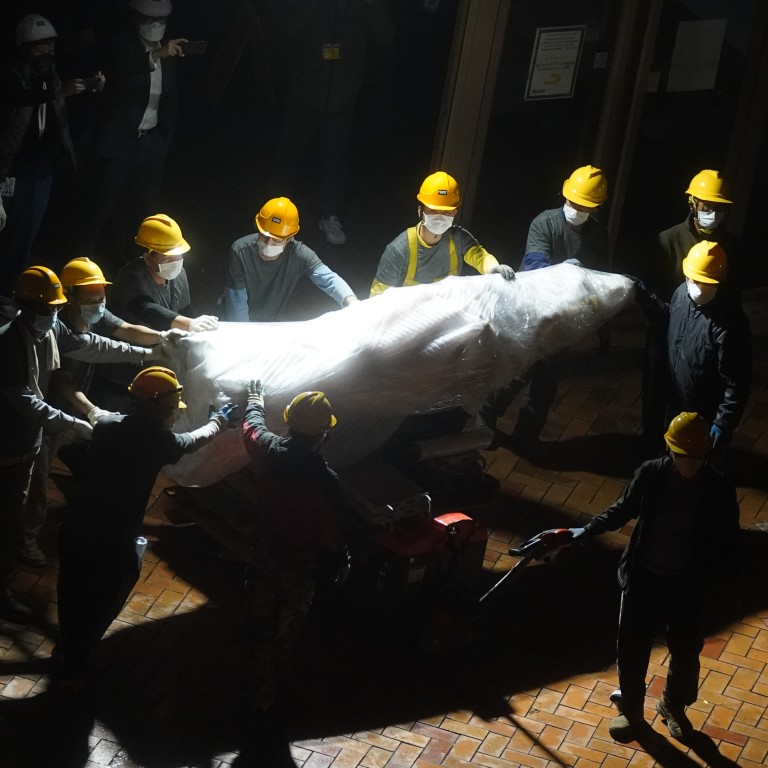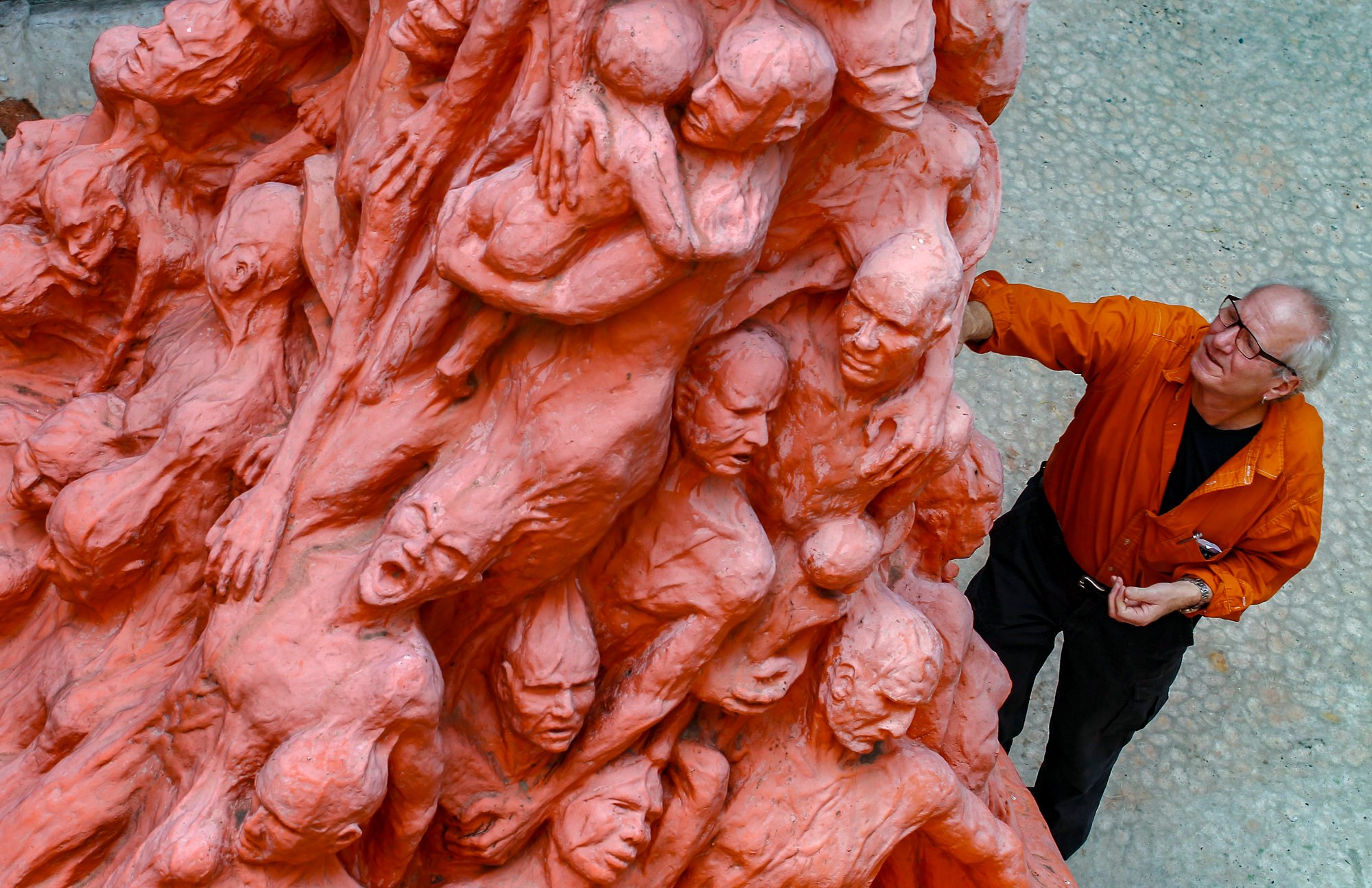
Hong Kong national security police seize ‘Pillar of Shame’ statue in connection with subversion case
- National security police execute search warrant at Kadoorie Centre and seize controversial artwork
- Sculpture’s creator tells Post he was neither consulted nor informed about its seizure and calls move ‘outrageous’
A source familiar with the case said the sculpture, called the “Pillar of Shame”, was confiscated from the Kadoorie Centre in Yuen Long, an agricultural research facility run by the University of Hong Kong (HKU) on Friday.
The removal comes less than a month before the 34th anniversary of the June 4 crackdown in Beijing and three days after a senior figure behind an annual candlelight vigil in Hong Kong mourning those killed in the event won a human rights award.
Pillar of Shame sculpture is a ‘sham’, HKU’s former council chairman says
A statement by the force only confirmed a seizure had been made relating to a national security case and did not reveal further details.
“The National Security Department of the Hong Kong Police Force conducted searches with a warrant this morning,” it said. “An exhibit related to an ‘incitement to subversion’ case was seized in Yuen Long.”
Chow was named winner of this year’s Gwangju Prize for Human Rights on Tuesday, an award set up in 2000 to mark the spirit of the South Korean democratic movement and honour people fighting for peace around the world.

Chow and two other core members were jailed in March for four and a half months each for refusing to assist police in an investigation into the group’s alleged breaches of the national security law. Two other members pleaded guilty and served three-month sentences.
The sculpture’s Danish creator Jens Galschiot told the Post the seizure was “outrageous” and he was neither consulted nor informed about it.
“I have heard that the sculpture will be used as evidence under the national security law, but this makes no sense to me,” he said, insisting he was the owner of the statue.
“The initiative has been mine, nobody has incited me to put it there, and I personally paid all expenses for it. I cannot see how they can use the sculpture under the national security law.”
In a reply to the Post, a spokesman for HKU confirmed the force removed “a piece of evidence” from the university’s facility in Yuen Long with a search warrant.
Goddess of Democracy statue, Tiananmen memorial removed from Hong Kong campuses
The eight-metre (26-feet) statue had stood at the university’s Pok Fu Lam campus since 1997 and was regularly displayed at the annual vigil in Victoria Park before the event was suspended.
The university explained at the time that its decision was made in light of “external legal advice and risk assessment”. That advice warned the school that continuing to display the statue would pose legal risks to the institution.
Hong Kong June 4 vigil likely to be on hold for fourth year amid park renovations
Galschiot told local media in February his legal representative had attempted to contact the university more than 10 times since last year to ask for the return of the artwork, but had not received any response.
He said he would not rule out launching legal action against HKU but hoped to handle the situation in the simplest way possible, or even travel to the city for in-person discussions with the university.
Hong Kong was the only city on Chinese soil to organise large-scale activities mourning those killed in Tiananmen Square in 1989. Police banned the annual event in 2020 and 2021, citing public health concerns amid the Covid-19 pandemic.
But an estimated 20,000 people still turned up at Victoria Park in 2020, including 26 opposition leaders, who were later arrested and charged for their participation in the unauthorised gathering.
Last year, authorities decided to close sections of the park a day before the vigil, after a man was arrested over calls made online to attack officers.
The commemoration is unlikely to go ahead this year as part of the venue has been closed for renovations, while a pro-Beijing group has applied to host a sales event in the remaining area of the park.


